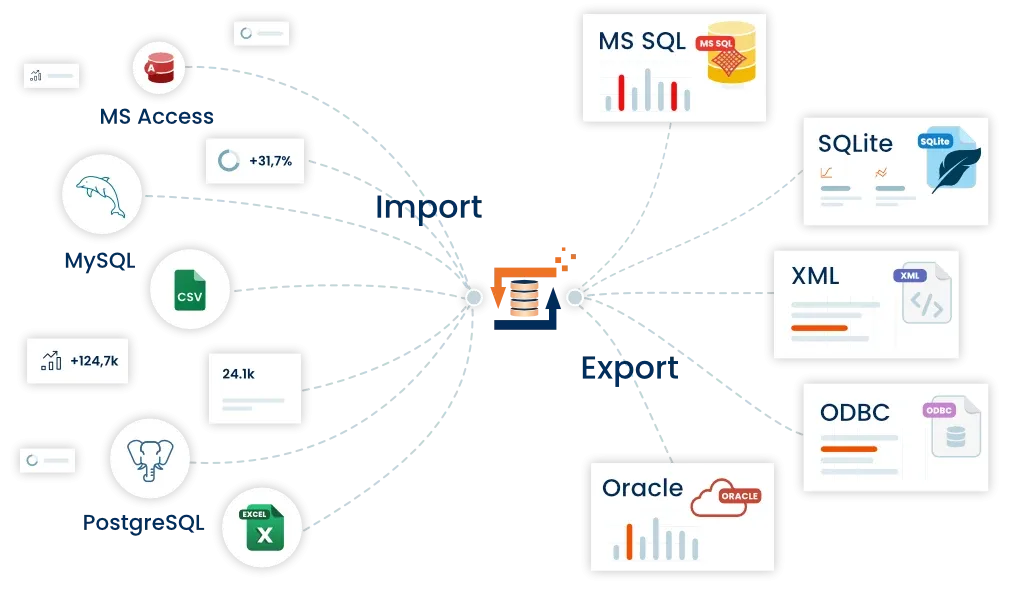Access Adapter with additional ODBC support
This version introduces an automatic ODBC driver fallback for the Access Adapter if no suitable OleDB driver is found.
Background: The Access Adapter uses the OleDB driver installed on the computer to access MS Access databases. Depending on whether an MS Office package or MS Access is installed, the required database drivers were always installed by the setup or could be installed manually. Microsoft has apparently now changed this with Office 2019, because these drivers are no longer installed. Manual addon installation of the drivers is also not possible as presently there is no "Microsoft Database Access Engine 2019" available.
The current dilemma is that post installation of an older "Microsoft Database Access Engine 2016" will fail with an incompatibility warning by the Office 2019 installation. In this case only a complete deinstallation of the MS Office 2019 package has helped. The older "Microsoft Database Access Engine 2016" can then be installed followed by reinstalling the Office 2019 package. Does anyone really want to do that? As of this version, in such a case existing FlowHeater Definitions can continue to be used. The Access Adapter will automatically use an available ODBC driver to connect to the Access database. A time-consuming manual porting of existing definitions to the ODBC adapter is no longer necessary with this version.
Caveat: The ODBC driver fallback only functions in the 32-bit version of FlowHeater. The reason is that the only MS Access ODBC driver available is 32-bit.
Release notes for version 4.1.9 on May 16, 2020
Other improvements
Clone Heater – dynamic output data type
The Clone Heater allows the current values to be output as DEBUG information at run time. As of this version the Clone Heater uses the original or incoming FlowHeater data type for output formatting.
Corrections
- Freeware Version: Processing of up to 100,000 records/rows is now possible again.
- RUNTIME Designer: With the switch to encrypted definitions from version 4.1.8, newly created RUNTIME Definitions gave the error message "invalid data at root level" when loading – now fixed.
- FlowHeater Server: Problem when a newer FlowHeater Definition was executed with the FlowHeater server – now solved.
- FlowHeater Server: Definitions currently running now dynamically display the current processing state, such as read and written records/rows.

